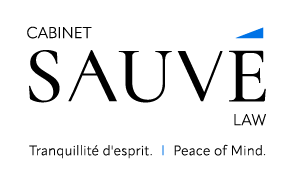The Modern Will: Planning for Your Digital Afterlife
Your Digital Legacy: A Guide to Managing Digital Assets in Your Ontario Estate Plan
In today's hyper-connected world, our lives generate a constant stream of digital data. We manage finances through apps, store a lifetime of photos in the cloud, build professional networks on LinkedIn, and connect with family on Facebook. This vast digital footprint is more than just data; it’s a collection of assets with real sentimental and financial value.
But have you ever paused to ask a critical question: What happens to all of it when you're gone?
For most Canadians, there's a significant gap in their estate plan where their digital life should be. Without a clear strategy, your digital assets can become locked, lost, or a source of profound stress for your executor and loved ones. At Cabinet Sauvé Law, we understand that modern estate planning requires a modern approach. This guide will walk you through why digital assets are crucial to consider and how you can protect them within your Ontario estate plan.
The Hidden Estate: What Exactly Are Digital Assets?
When we say "digital assets," we're referring to a broad and ever-growing category of property that exists only in a digital format. It’s helpful to think of them in three main categories:
1. Assets with Sentimental Value: These are the digital extensions of your personal life and memories. While they may not have a price tag, their loss can be devastating for your family.
- Photos and Videos: Stored on services like Google Photos, Apple iCloud, or directly on computers and hard drives.
- Email Accounts: Often the central hub of a person's digital life, containing personal correspondence and access to other online services.
- Social Media Profiles: Facebook, Instagram, Twitter (X), and LinkedIn accounts that hold memories, connections, and a record of your life.
- Personal Documents: Cloud-stored documents, personal blogs, or journals.
2. Assets with Financial Value: This category includes anything that holds direct monetary worth or provides access to funds. Losing access to these can have serious financial consequences for your estate.
- Cryptocurrency: Bitcoin, Ethereum, and other digital currencies held in online "wallets." These are notoriously difficult to access without the correct private keys.
- Online Banking and Investment Portfolios: Profiles with major banks, robo-advisors like Wealthsimple, or brokerage accounts.
- Reward Points: Accumulated points from programs like Air Miles, Aeroplan, or credit card rewards, which can hold significant cash value.
- Online Payment Accounts: Balances held in platforms like PayPal or Stripe.
- Digital Subscriptions and Accounts with Stored Value: Amazon accounts, gaming libraries (like Steam), or software licenses.
3. Assets Tied to a Business or Brand: For entrepreneurs and professionals, these assets can be the lifeblood of a business and essential for its continuation or orderly winding-down.
- Domain Names and Websites: The online "real estate" of a business.
- Business Social Media Accounts and Client Lists.
- Intellectual Property: Digital manuscripts, code, proprietary software, or online course materials.
The High Stakes of Inaction: Why You Can't Afford to Ignore Your Digital Legacy
Failing to plan for your digital assets isn't a small oversight; it can create a cascade of legal, financial, and emotional problems for the people you leave behind.
- Preventing Administrative Nightmares for Your Executor: An executor (known as an "Estate Trustee" in Ontario) has a legal duty to identify and manage all of the deceased's assets. Without a roadmap, they are left guessing. How can they close a credit card account if the statements are paperless and delivered to an inaccessible email address? This lack of access can stall the entire estate administration process.
- Securing Financial Value: Imagine your estate includes a significant amount of Bitcoin, but no one knows the password to the digital wallet. That wealth, which could have supported your family, is effectively lost forever. The same applies to online investment accounts or even a simple PayPal balance.
- Protecting Sentimental Treasures: For many families, the loss of decades of digital photos is more painful than the loss of a physical item. Service providers have policies to delete inactive accounts, meaning these irreplaceable memories could be permanently erased before your family has a chance to retrieve them.
- Guarding Against Posthumous Identity Theft: An unmonitored email or social media account is a prime target for fraudsters. Scammers can use a deceased person's identity to open credit or commit other forms of fraud, creating a mess that the grieving family is left to clean up.
A Practical Guide: Building Your Digital Estate Plan in Ontario
Integrating your digital life into your estate plan is a straightforward process that provides immense security. Here are the essential steps:
Step 1: Conduct a Digital Asset Audit
You can't plan for what you don't know you have. Take the time to systematically go through your digital life. Check your computer, your phone, and your browser's password manager. Make a list of every online account, subscription, and digital file of importance.
Step 2: Create Your Digital Asset Inventory
This is the most critical document for your executor. This inventory should be a separate document from your will and stored in a secure, yet accessible, location.
IMPORTANT: Your will becomes a public document once it enters probate. NEVER list passwords, PINs, or private cryptocurrency keys directly in your will.
Your Digital Asset Inventory should include:
- The name of the website or service (e.g., "Facebook," "Google/Gmail").
- The URL or login page.
- Your username or login email.
- Instructions on how to access the password (e.g., "Password is in my password manager, LastPass, master password located in sealed envelope in my safe").
- Your wishes for the account (e.g., "Download all photos and then permanently delete the account," "Transfer ownership of this domain to my son," "Keep this professional profile active for 6 months then memorialize it").
Step 3: Empower Your Executor in Your Will
Your will is the legal tool that gives your executor the authority to act. You need to include a specific clause that grants your Estate Trustee the explicit power to access, manage, control, and dispose of your digital assets. Without this legal authority, tech companies—bound by strict privacy laws and their own terms of service—can rightfully deny your executor access, even with a death certificate.
This clause should also indemnify (protect) them from liability for carrying out your wishes, and ideally, provide for the ability to hire technical experts if needed.
Step 4: Understand the Terms of Service Challenge
A major hurdle is that when you sign up for an online service, you agree to a "Terms of Service Agreement." These often state that your account is non-transferable and may even terminate upon your death. This can create a legal conflict with the instructions in your will. Having a specific digital asset clause in your will gives your executor the strongest possible legal standing to negotiate with these companies and carry out your wishes.
Secure Your Full Legacy with Cabinet Sauvé Law
In the 21st century, a box of old photos has been replaced by a cloud server, and a bank passbook by a banking app. Your estate plan needs to reflect this reality. Thinking about your digital legacy is not just a technical exercise; it's an act of care for the people you will one day leave behind. It ensures your financial assets are secured, your memories are preserved, and your loved ones are spared unnecessary hardship during a difficult time.
our approach in the rapidly changing digital landscape
At
Cabinet Sauvé Law, we are experienced in crafting modern, comprehensive
estate plans that protect your entire legacy. We can help you draft a will that provides your executor with the necessary legal tools to navigate the complexities of your digital world, giving you and your family true peace of mind.
Don't leave your digital door locked. Contact us today at Cabinet Sauvé Law for the help and advice you need for true Peace of Mind, and ensure your complete legacy -digital and tangible - is preserved.




